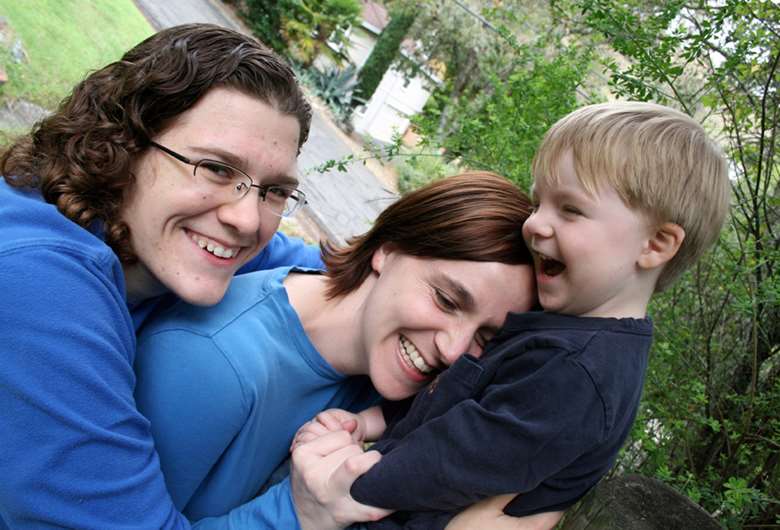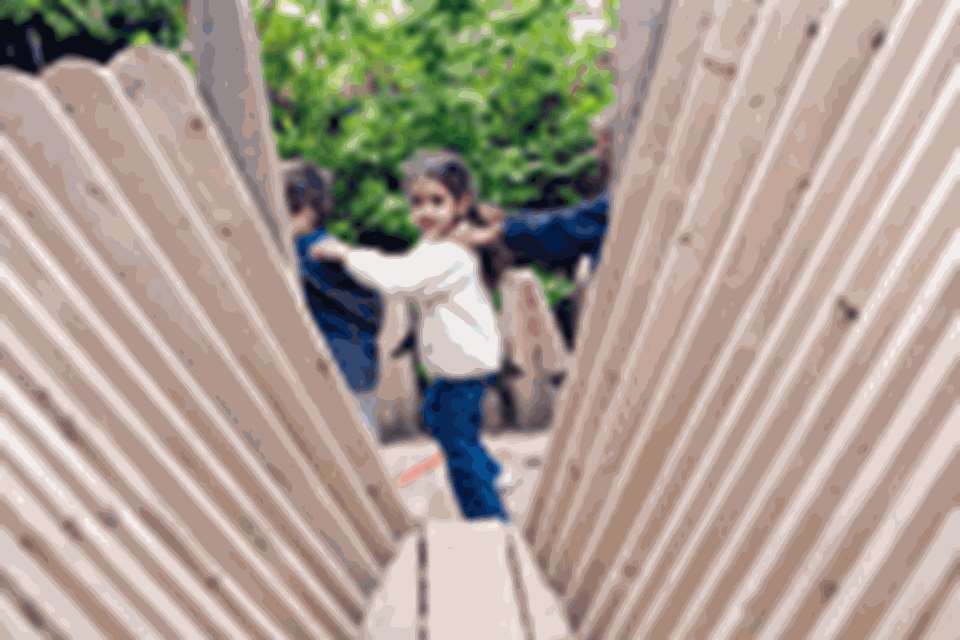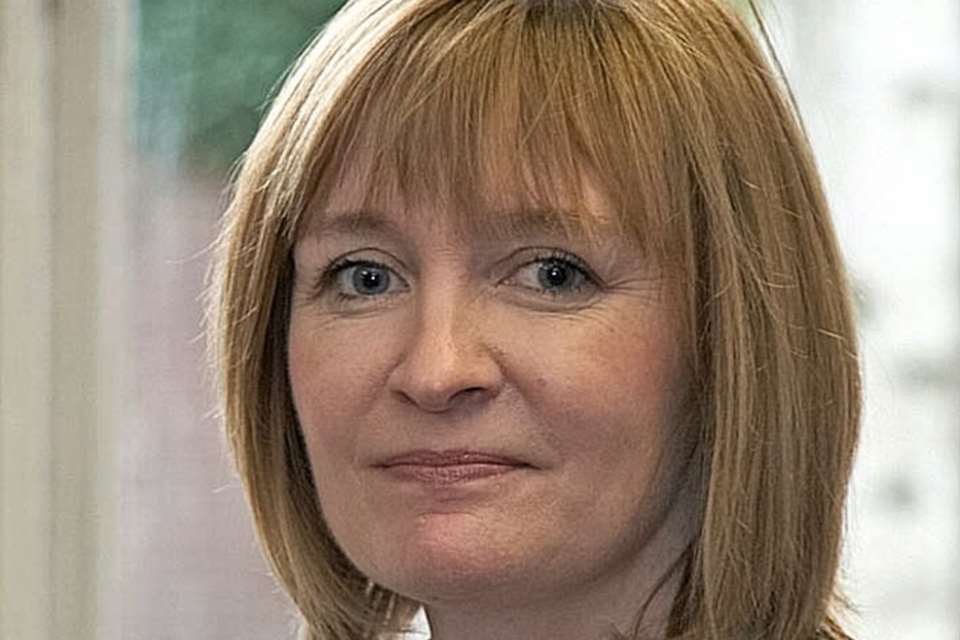Positive Relationships: Working with parents - We go to the shops...
Deborah Price and Kath Tayler
Monday, July 13, 2015
LGBT people may become parents in a variety of ways, and will face challenges both unique to their situation and in common with other parents. Deborah Price and Kath Tayler reflect on the role of practitioners in supporting these families.

Like all families, LGBT (lesbian, gay, bisexual and transgendered) parent families come in many shapes and sizes. Some will have many children, some will have only one. They will be dealing with all the issues that any other family may be facing.
Poverty, ill-health and disability, poor housing, parental separation, redundancy, low pay, mental health and many other issues are all challenges that LGBT parent families may struggle with. There will also be births, deaths, marriages, birthdays, parties, holidays, moving house, starting a new job or school and all the other life events that all families experience. As 11-year-old Joe tells us of his life with his two fathers, 'We go to the shops too - we're more the same than different!'
Many children with LGBT parents were born to heterosexual parents where one or both parents then came out as lesbian, gay, bisexual or transgender. Sometimes the parents' relationship ends as a result of this and new families, either as single parents or with new partners, are formed. For the children in these situations, many of the issues of parents separating and forming new relationships are the same as they are for any children whose parents separate.
It is important to recognise that insecurity at this time will largely be due to the separation, possibly involving moving house, new childcare or school and getting used to new relationships. As Chris, now 12, recalls, 'When mum first met Alice I was only three so I was a bit jealous as I wanted my mum to myself, but now I think of her as my stepmum.'
Increasingly, children are born to LGBT parents through insemination by a known or anonymous donor or through surrogacy. When the donor is a known, they may or may not be involved in the child's life. When clinics are used to aid conception, the child is able to receive details of the donor when they become 18 years old.
Recent legislation allows both names in a same-sex partnership to be on a child's birth certificate. Unlike children whose parents come out after the children are born, children who are conceived through insemination or surrogacy have LGBT parents from the start and the parents are encountering the medical profession and early years practitioners from the beginning.
Many LGBT parents foster or adopt their children. It has never actively been against the law for lesbians and gay men to adopt children. However, it wasn't until The Adoption and Children Act 2005, that unmarried couples (including same-sex couples) were allowed to adopt children for the first time (Stonewall, 2014). Before this, unmarried couples and same-sex couples could only adopt as single adopters with only one name on the adoption certificate. Since The Adoption and Children Act 2005 there has been a steady increase in the numbers of LGBT people coming forward as adopters. The Department for Education states that the number of same-sex couples adopting has risen from 3 per cent in 2009 to 6 per cent in 2013 (Pink News, 2014).
As well as these situations, it is important to recognise that children in families with heterosexual parents may well have other significant relationships with LGBT people in their wider families and within their communities. As one practitioner explains, 'We've got one little girl, Sammy, at our setting who is fetched every Friday by her auntie. Her auntie lives with her female partner and Sammy talks about her aunties a lot, especially now as they are planning their wedding and Sammy is going to be a bridesmaid, which she is very excited about. We feel it is important that she can share what's important to her in the same way all the children can.'
Even if children are growing up not knowing any LGBT people themselves, they will be part of a community and of society generally and spending their early years in a setting that values diversity, is positive about difference and that challenges discrimination of all kinds, will have an impact on all children and their families.
While there are many different ways in which LGBT people come to be parents, or other significant people in children's lives, there are some issues that are shared by them and their children. They all live in a society of which homophobia is still a part and this has to be dealt with in all aspects of life.
It is also important to remember that even though there are many issues particular to families with LGBT parents, there are also many issues that are shared with all parents. LGBT parents will worry about the same things as any parent: Am I a good parent? What is a reasonable bedtime? When should I potty train? How should we deal with tantrums? Should our baby sleep in bed with us? When should I wean him?
As one mother explains, 'How well you support your child, whether you listen to them and give them your attention, spend time with them, play with them, read to them and help them to understand their world is what matters. All of that can happen, or not, in any family.'
It is worth remembering that for the children of LGBT parents it is 'the prejudices of others that cause them far more distress than their own personal or family characteristics' (Guasp, 2010).
As one young person explained, 'I grew up with two mums and two dads. One of my mums gave birth to me and one of my dads was the donor, but they were all my parents. Until I went to nursery I was almost entirely surrounded by lesbians, gay men and their kids. We were like one big family. I was very happy and felt loved by lots of people. There were some difficulties though, but not from my family - it was from other people's attitudes. Although I am straight, I also suffered because of homophobia.'
This is an edited extract from chapter four of LGBT Diversity and Inclusion in Early Years Education by Deborah Price and Kath Tayler (Routledge, May 2015). Deborah Price and Kath Tayler are both senior lecturers in early years education at Brighton University and also associate lecturers at The Open University
IMPLICATIONS FOR PRACTICE
- It is part of the practitioner's role to be open and welcoming to all families.
- It is central to a child's sense of well-being that their family is recognised and valued within their early years setting.
- Resources need to reflect a diverse range of families.
- Children need to know that the names they use for their parents are accepted in the setting.
- A culture of openness needs to be created in a setting so practitioners can safely explore their feelings about these issues.
- Discrimination against LGBT parents and their children needs to be tackled by the setting.
- Even when there are no families with LGBT parents in a setting, it is good equalities practice to reflect on these issues.
READER OFFER
LGBT Diversity and Inclusion in Early Years Education by Deborah Price and Kath Tayler (Routledge, May 2015) is a book about families. Designed to support practitioners in thinking about LGBT issues within early years practice, the book examines the history of equalities and looks at the diversity of families with LGBT members.
Case studies and discussion points provide advice and guidance on creating an inclusive environment for all the children in early years settings. The book also considers LGBT diversity within staff teams and provides activities to support reflection on this.
Nursery World readers will receive a 20 per cent discount when ordering online at www.routledge.com/books/details/9781138814103 with code NW015.
MORE INFORMATION
Adoption and fostering', Stonewall (2014), www.stonewall.org.uk/at_home/parenting/2624.asp(accessed 27 April, 2014)
Different Families. the experiences of children with lesbian and gay parents by A Guasp (2010), Stonewall/Centre for Family Research.
'England: number of gay couples adopting children doubles', Pink News (2014), www.pinknews.co.uk/2014/03/03/england-number-gay-couples-adopting-children-doubles (accessed 27 April, 2014).
[asset_library_tag 858,Download the PDF]






